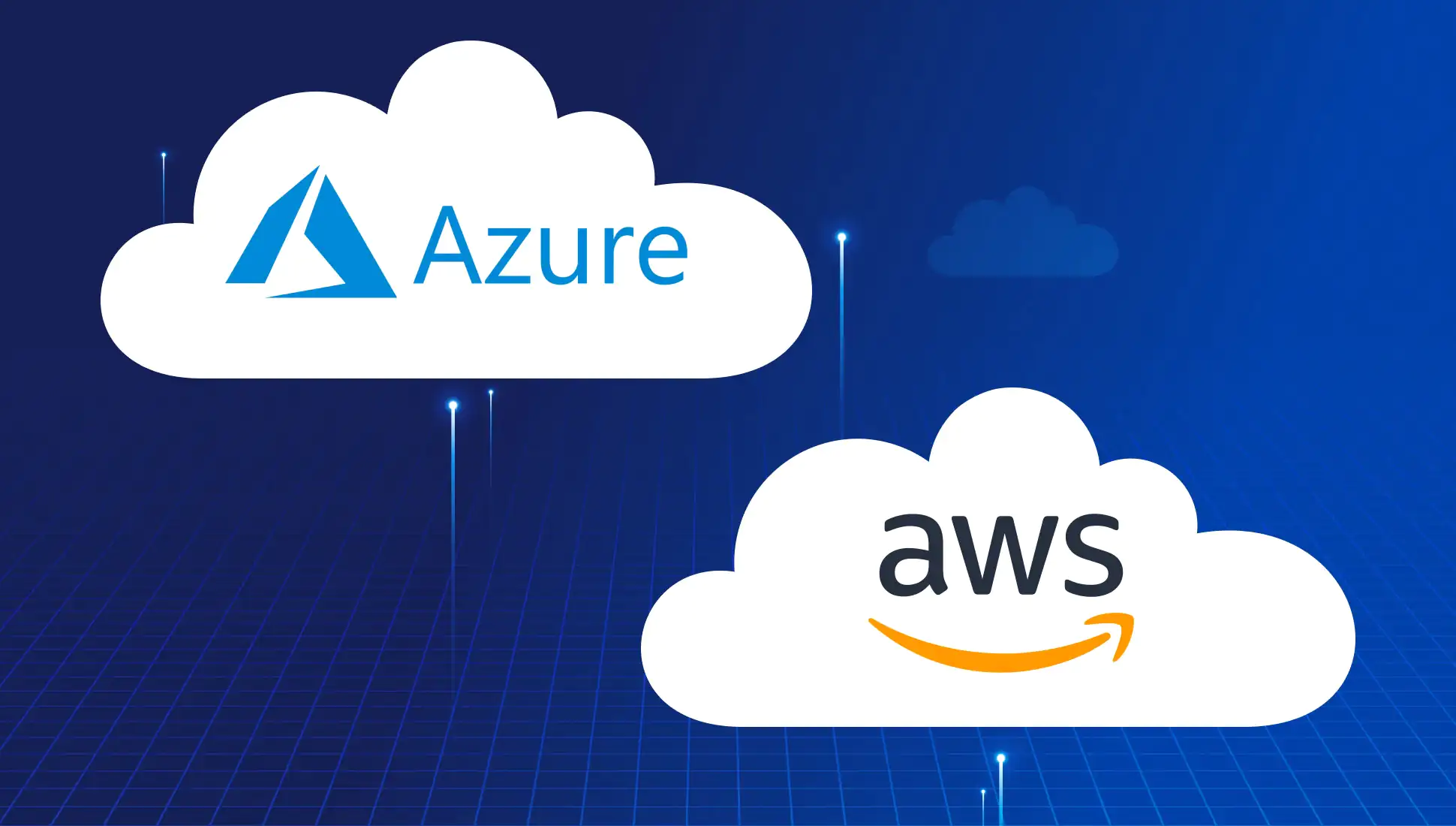Deciding between Azure and AWS certifications is a common dilemma, especially for IT professionals aiming to upskill in cloud technologies. With both platforms dominating the cloud computing space, it’s no surprise that choosing the right certification path can feel a bit overwhelming. But don’t worry—let’s break it down step by step. In this blog, we’ll walk you through both Azure and AWS certification paths, their relevance, and which one might be the right fit for your career.
Why Are Cloud Certifications Important?
Before diving into Azure vs AWS, let’s first address the “why.” Cloud certifications validate your expertise and open the door to high-paying jobs, greater responsibilities, and career growth. Employers see these certifications as proof that you can work with real-world cloud deployments efficiently and securely.
In 2024, Azure and AWS continue to lead the cloud market, each with its unique benefits and growing customer base. But the question remains: Which certification should you choose?
Azure Certification Path: A Career Game-Changer
If you’re inclined toward Microsoft technologies or working in environments already using Microsoft products (like Office 365, Dynamics, or .NET applications), the Azure certification path might be the best option. Azure integrates seamlessly with these products, making it a preferred choice for many enterprises.
Overview of Azure Certification Path
Azure offers a well-structured certification path suitable for beginners, professionals, and advanced users. Let’s break it down:
- Fundamentals Certifications (Ideal for beginners):
- Azure Fundamentals (AZ-900)
Who it’s for: Freshers or those with no cloud experience, giving you a solid cloud foundation.
- Azure Fundamentals (AZ-900)
- Associate-Level Certifications (Intermediate level):
- Azure Administrator (AZ-104)
- Azure Developer (AZ-204)
Who it’s for: IT admins, developers, or system engineers ready to deepen their cloud expertise.
- Expert-Level Certifications (Advanced professionals):
- Azure Solutions Architect Expert (AZ-305)
- DevOps Engineer Expert (AZ-400)
Who it’s for: Professionals involved in enterprise-level architecture, infrastructure, and DevOps practices.
Azure certifications are in high demand, especially for Azure Solutions Architects and Azure DevOps Engineers, and this trend is likely to grow in 2024. Plus, Azure focuses a lot on AI, Machine Learning, and IoT integrations, which makes it an appealing choice if you want to dive into these emerging technologies.
| The Benefits of Hiring Freelance Software Developers for Your Projects
AWS Certification Path: The Cloud Leader’s Advantage
AWS, or Amazon Web Services, has been the market leader in cloud computing for many years. It is widely adopted across industries—from startups to enterprise giants. AWS offers more than 12 certifications across different domains, making it a bit more varied compared to Azure.
Overview of AWS Certification Path
AWS also offers structured certifications, but the sheer variety can be overwhelming. Here’s a breakdown:
- Foundational Certifications (Beginner level):
- AWS Certified Cloud Practitioner
Who it’s for: Anyone new to cloud technologies.
- AWS Certified Cloud Practitioner
- Associate-Level Certifications (Intermediate level):
- AWS Certified Solutions Architect – Associate
- AWS Certified Developer – Associate
Who it’s for: Developers and solution architects working with AWS deployments.
- Professional-Level Certifications (Advanced level):
- AWS Certified Solutions Architect – Professional
- AWS Certified DevOps Engineer – Professional
Who it’s for: Advanced professionals looking to manage large-scale AWS infrastructure.
AWS certifications are ideal for those aiming to work with serverless architectures, big data, and cloud-native applications. AWS is also known for its leadership in IoT and machine learning, making it a strong contender if you’re focusing on innovation-driven roles.
How Do Azure and AWS Certifications Compare?
| Aspect | Azure Certifications | AWS Certifications |
|---|---|---|
| Ease of Learning | Easier for those familiar with Microsoft tools | Slightly steeper learning curve |
| Certification Cost | Generally lower (varies by region) | Slightly higher on average |
| Market Demand | Growing fast in enterprises | Market leader with widespread demand |
| Specialization | Strong focus on AI, IoT, and hybrid cloud | Leads in serverless, big data, and IoT |
| Exam Flexibility | Multiple retake attempts | Limited attempts per year |
Both platforms offer robust certifications. However, the choice boils down to your career goals and the technologies you’re working with.
Which Certification Path Should You Choose?
Here’s where the decision-making gets interesting.
- If your organization uses Microsoft products heavily or if you plan to work in enterprises with .NET frameworks, Azure certifications will align well with your career.
- If you’re working in a startup or a tech company that builds cloud-native applications and uses open-source technologies, AWS certifications are the way to go. AWS’s edge in serverless and IoT technology makes it the first choice for innovation-focused roles.
Both certifications boost your resume, but Azure Certification might offer more opportunities in hybrid cloud environments, where companies transition from on-premises infrastructure to the cloud.
Future Prospects of Azure and AWS Certifications
With both AWS and Azure rapidly expanding their capabilities, choosing either will benefit your career in the long run. However, there are a few trends to keep an eye on:
- Azure Certifications are becoming increasingly popular in regions like India, the Middle East, and Europe, where Microsoft’s enterprise tools dominate the market.
- AWS Certifications are still the global leader, especially in North America, where AWS’s presence is more widespread.
In the end, many IT professionals choose to get certified in both Azure and AWS to maximize their career potential. This hybrid approach offers the flexibility to work across various cloud environments.
Conclusion: Which Certification Path is Right for You?
There is no clear winner when comparing Azure certifications vs AWS certifications. The right choice depends on your job role, industry, and career aspirations. If you’re looking to start your cloud journey with something more familiar and enterprise-friendly, the Azure certification path might suit you. If you prefer to work in innovation-driven roles or startups, AWS could be the better option.









